Continuing our series of hub visits as part of the Procurement For Good project, we travelled to London to visit the Better Food Shed, a thriving sustainable food procurement hub
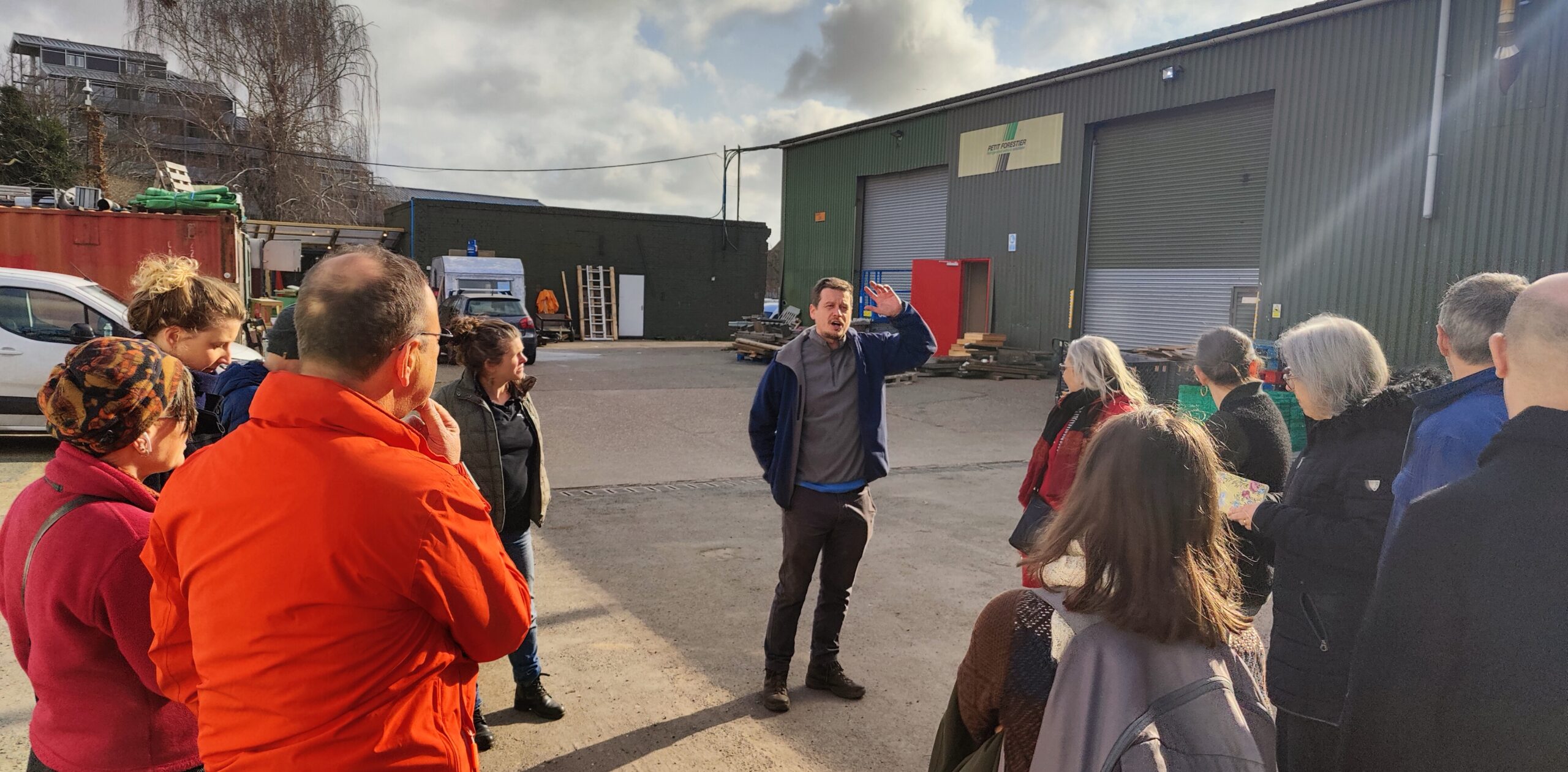
In March, the Procurement For Good project team travelled to London to visit project partner Growing Communities and their not-for-profit organic fruit and vegetable wholesaler, Better Food Shed. The Better Food Shed is a great example of a sustainable food procurement hub already doing some great work, and we were shown around by deputy director of supply chains for Growing Communities, Danny Fisher.
About the Better Food Shed
Tucked away in Bow in east London, Better Food Shed (BFS) coordinates the movement of up to 20 tonnes of organic produce into London every week. Food is sourced from their network of 23 small and medium growers, many of which are within 70 miles of their site in east London. Their packers and delivery drivers then divide up deliveries, combine produce from multiple producers and transport produce to their 20 wholesale customers using their electric delivery vans.
The idea for BFS emerged in 2018, when Danny, then a buyer at OrganicLea, met with Growing Communities to discuss the issues they were both facing with outgrowing their model of direct farm purchases and having to rely more on wholesalers to supply their veg box schemes.
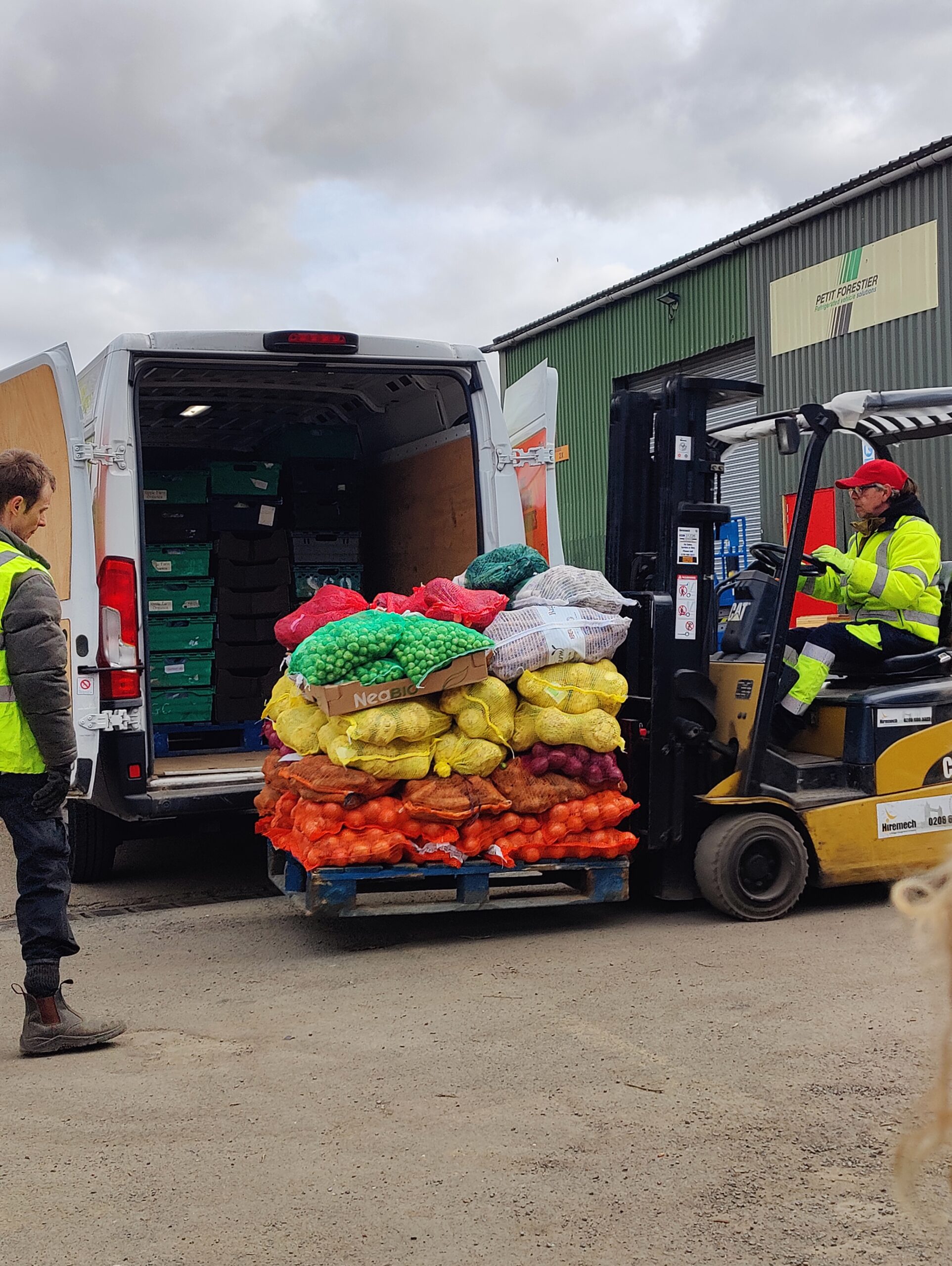
The solution was to create a distribution hub in London, where delivery burden for small farms was reduced by delivering to a single location and demand from multiple box schemes could be aggregated and met by multiple producers.
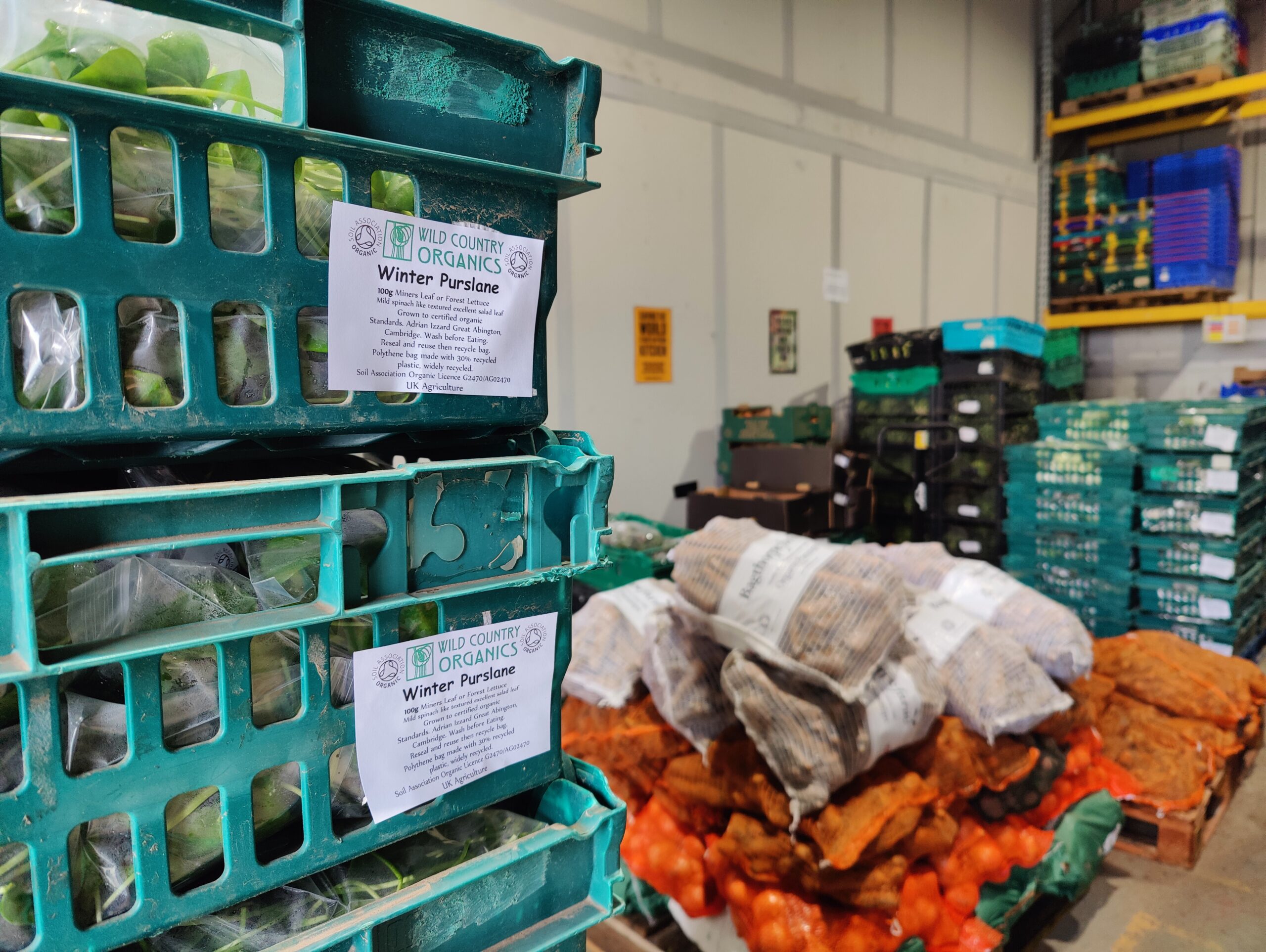
Challenges
Whilst the delivery team were busily ferrying vibrant purple sprouting broccoli and sacks of papery onions around us in the warehouse, we learned about some of the challenges BFS have faced. Just as we found in the Sustainable Food Procurement Hubs project in Wales, logistics were a key element to get right. Many hauliers won’t even consider a delivery unless there’s a forklift on site or the drop is part of an existing market route as the costs are too high, so equipment and building relationships with hauliers was essential. The BFS team also specifically chose the Bow site as it’s located on main roads into London, and near public transport stops which was key for recruiting staff.
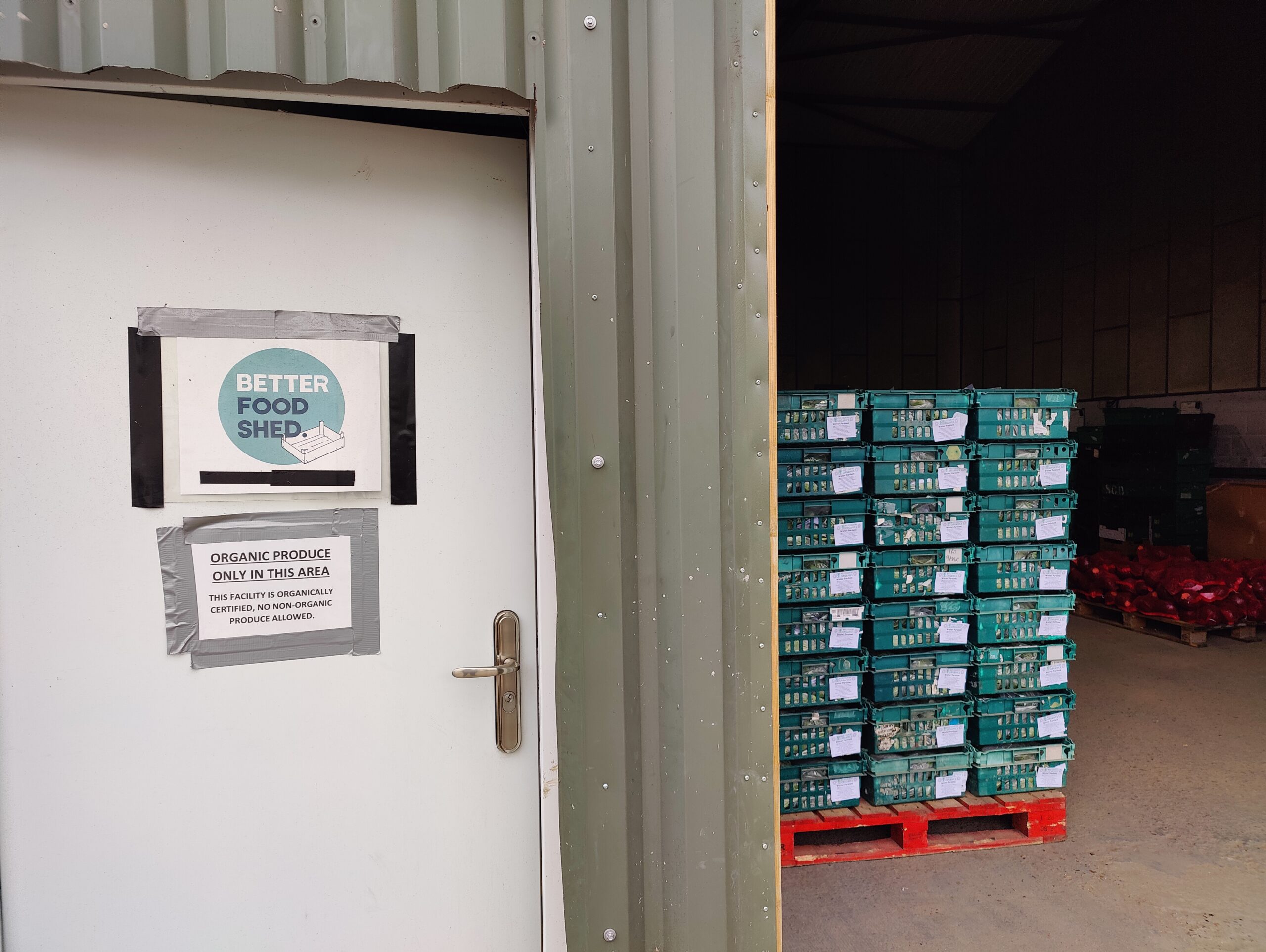
Procurement Customers
So what about their public customers, whom the P4G project team were particularly interested in? Danny told us about how BFS currently delivers to four schools locally – two in Tower Hamlets, and two in Hackney near Growing Communities main site. Whilst the biggest barrier for schools purchasing organic, UK-grown produce is generally considered to be the price, Danny spoke about how the challenges are in fact more often things like seasonality (with kitchens often wanting cucumbers and tomatoes year round), peak UK growing season occurring during school holidays, limited storage in school kitchens and a lack of prep equipment. Despite the challenges, the schools they do work with are hugely enthusiastic about the quality of the food and love knowing exactly where their food has come from. The BFS team has capacity to take on one more school customer currently, so get in touch if you’re interested in finding out more.
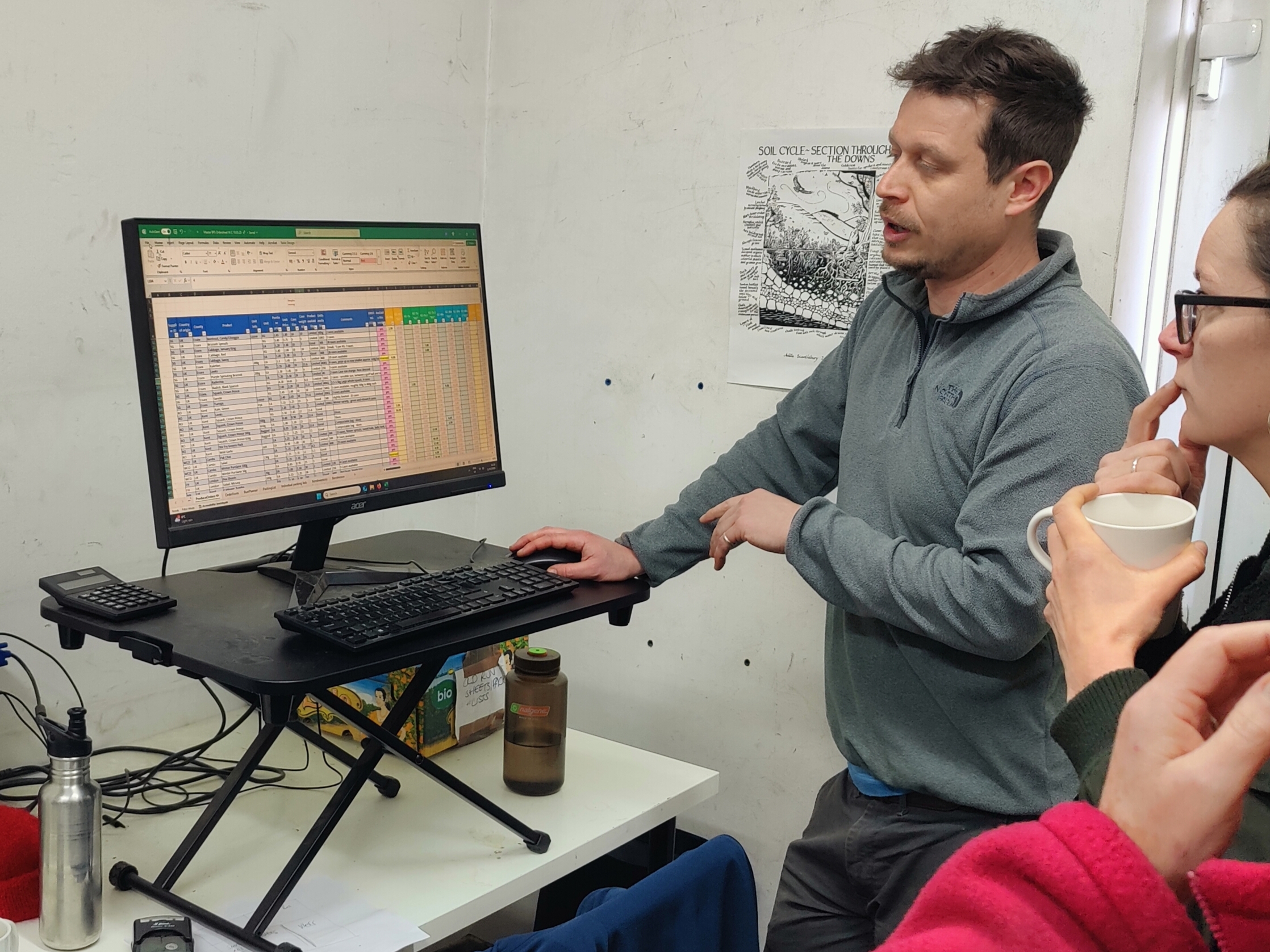
Order Management
Our next stop was the site office. Just as we champion at OFN, Better Food Shed also prioritises transparency and customers receive stock lists that are broken down by growers and include updates from farms such as crop notes, which often ends up in resulting box scheme newsletters. BFS’s approach of not aggregating the produce in order lists, e.g. offering ‘Carrots from OrganicLea’ and ‘Carrots from Wild Country Organics’, also allows customers to choose exactly who to purchase from, and ensures traceability through the supply chain. Their pricing decisions are also informal and collaborative; BFS might call a grower if they think something is priced too low, and vice versa.
The visit to BFS was a fascinating glimpse at what a more transparent, locally rooted supply chain can look like. It revealed both the potential and the limits of trying to build alternatives within a food system that still heavily favours scale and profit, but the incredible achievements of the team at Better Food Shed so far were an inspirational way to spend a day in east London. We look forward to seeing what they do next!
Stay tuned for more in our series of visits to sustainable food procurement hubs as part of the Procurement For Good project.
